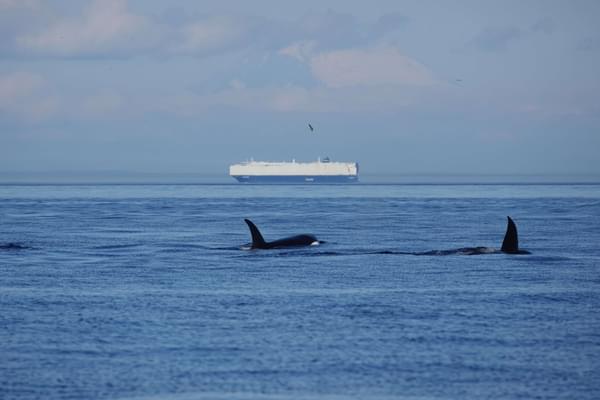As we move further into 2025, it’s fair to say that in the cetacean conservation world, we are having to navigate through an increasingly turbulent ocean of uncertainty. We closed off 2024 with Japan mobilizing its whaling fleet, and then the shameful decision by Icelandic politicians to throw a life-line to its own mothballed whaling ships.
Long-standing efforts to create protective measures for North Atlantic right whales foundered on the rocks of Biden’s last days in office. But the real uncertainty exists around what measures newly-inaugurated US President Trump will either take, or scrap, around protections for whales, and what the domino effect of that might be globally.
So we shouldn’t anticipate Trump introducing any measures which prioritise marine mammals or habitats over business. What may yet happen, however, is the scrapping of existing rules in place to provide protections. Vested interests will see the Trump presidency as an opportunity to roll-back “rules and red-tape” that are impeding growth and those “America First” arguments will win out over whales for the next four years. During his first administration, Trump became the first president in history to unprotect a protected area when he lifted fishing restrictions in Northeast Canyons and Seamounts Marine National Monument, the 4,900-square-mile home to many endangered marine species and fragile deep-sea corals.
So Trump is not an advocate for conservation, at least when it compromises or restricts US interests. On the day of his inauguration he signed an order stating that the long-standing Endangered Species Act can’t be allowed to serve as an obstacle to energy development.
His rejoinder to “Drill, baby, drill” to boost oil and gas production in the face of what he called an energy emergency underlines what we already know about Trump policy – if the natural world has economic value then we should extract what we need from it.
And while those needs might be political, economic or even conflicting, they aren’t defined by any moral compass.
That same executive order also created a committee to “..identify obstacles to domestic energy infrastructure specifically deriving from implementation of the ESA or the Marine Mammal Protection Act,” a landmark conservation law. It states the committee could consider regulatory reforms, including “species listings,” as part of its work. To say the least, that sounds ominous, particularly for a species like the Rice’s whale, which numbers even fewer that of the North Atlantic right whale, and is vulnerable to disruption from oil drilling in the Gulf of Mexico. What is a critically endangered species to ORCA is an obstacle to an oil company.
Trump loves to imagine the world reacting to him and sometimes, with all the media attention he laps up, it's easy to forget that the USA is not the entirety of the planet.
ORCA is far from alone in our clear-eyed and determined resolve to continue evidencing the need for greater protections for our incredible marine wildlife. Every day we are working with conservation organisations, nations, statutory global bodies, citizen scientists and the shipping and tourist industry to create a better, safer future in which our oceans, whales and dolphins thrive.
Mr President, we aren’t about to stop.
Title image, North Atlantic right whale, credit: Mark Carwardine

ORCA's work to protect whales and dolphins has never been more important and to help safeguard these amazing animals for the future we need your help. Please support our work by donating at www.orca.org.uk/donate to help us create oceans alive with whales and dolphins.

